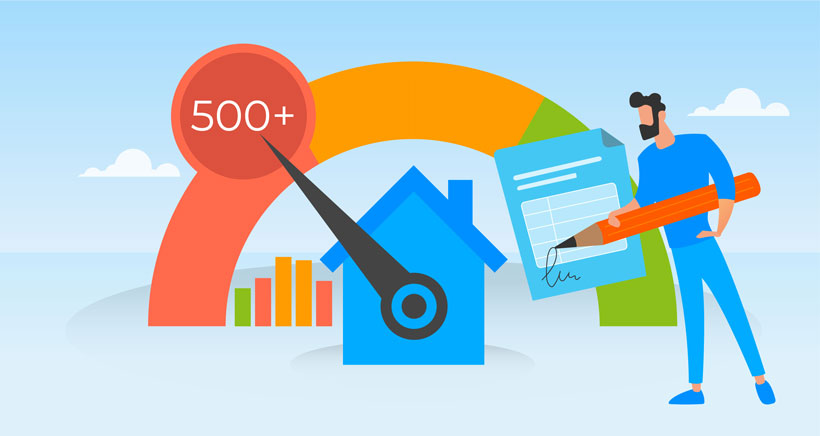Having a low credit score can impact your ability to rent an apartment, buy a car, or even buy your first time. When it comes to home buying, most people need a mortgage to afford a home. But bad credit can significantly reduce your odds of being approved for a mortgage loan. Keep reading to learn more about how credit scores affect one’s ability to buy a home and some tips on buying a home with a low credit score.
Mortgages and bad credit scores
In Canada, a bad credit score is one that is below 600. Many traditional mortgage lenders refuse to provide mortgages to borrowers with low credit scores. If your credit score is under 600 but you want to buy a home, you may have to consider working with a private lender or subprime lender. These are mortgage lenders that work exclusively with bad credit borrowers.
As you might expect, obtaining a mortgage from a private lender is typically more expensive. In addition to higher interest rates, a subprime or private lender may also require you to make a minimum down payment of 20%. There may also be additional fees like a loan processing fee (up to 1% of the total loan amount) or a loan origination fee (also 1%) if you worked with a mortgage broker to find your subprime lender.
Bad credit mortgages also come with the risk of repossession, meaning your mortgage lender has the right to sell your property if you default on your mortgage payments.
Home buying tips for borrowers with poor credit scores
1. Find a steady job
An unstable employment history is a major red flag to lenders. So before applying for a mortgage, try to find a stable job with a steady income.
2. Apply for a mortgage through a subprime or private lender
If your credit score is below 600 and you can’t afford to wait to buy a home until your credit score improves, your only option may be going through a subprime or private lender. As mentioned, bad credit mortgage lenders tend to have higher interest rates. That said, they have lower credit score requirements, which means that no matter how bad your credit score, you might still be approved for a mortgage. Plus, these lenders usually have short-term mortgage loans of six months to three years, allowing you to apply for a new mortgage with a traditional lender and a more affordable rate when your term ends.
3. Make a higher down payment on your future home
Committing to a down payment of 20% will likely translate to lower mortgage rates. Mortgage lenders might be hesitant to approve a mortgage if your down payment is small (e.g. 5%).
4. Pay off your credit card debts
Pay off any and all credit card debts before applying for a mortgage. Both your payment history and credit utilization ratio can affect your credit scores. Paying your credit card bills on time and in full and keeping your credit utilization ratio under 30% is one of the best ways to improve your credit score (and in turn, reduce your mortgage interest rate).




